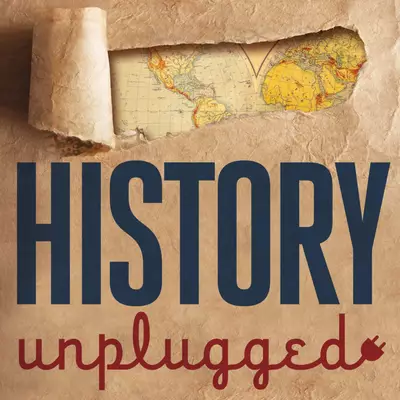Listen on Your Favorite App
Age of Discovery 2.0, Part 4: How Lessons From U.S. History Will Help Space Colonies Be More Like Star Trek and Less Like Blade Runner
November 11, 2021
00:00
46:47
Listen on Your Favorite App
The human race is about to go to the stars. Big rockets are being built, and nations and private citizens worldwide are planning the first permanent settlements in space.
When we get there, will we know what to do to make those first colonies just and prosperous places for all humans? How do we keep future societies from becoming class segregated, neo-feudal dystopian nightmares (like Blade Runner) and instead become havens of equality and material abundance for all (like Star Trek)? Believe it or not, American colonial history provides us an example of each one.
Today’s guest is Robert Zimmerman, author of “Conscious Choice,” which describes the history of the first century of British settlement in North America. That was when those settlers were building their own new colonies and had to decide whether to include slaves from Africa.
In New England slavery was vigorously rejected. The Puritans wanted nothing to do with this institution, desiring instead to form a society of free religious families, a society that became the foundation of the United States of American, dedicated to life, liberty, and pursuit of happiness.
In Virginia however slavery was gladly embraced, resulting in a corrupt social order built on power, rule, and oppression.
Why the New England citizens were able to reject slavery, and Virginians were not, is the story with direct implications for all human societies, whether they are here on Earth or on the far-flung planets across the universe.
When we get there, will we know what to do to make those first colonies just and prosperous places for all humans? How do we keep future societies from becoming class segregated, neo-feudal dystopian nightmares (like Blade Runner) and instead become havens of equality and material abundance for all (like Star Trek)? Believe it or not, American colonial history provides us an example of each one.
Today’s guest is Robert Zimmerman, author of “Conscious Choice,” which describes the history of the first century of British settlement in North America. That was when those settlers were building their own new colonies and had to decide whether to include slaves from Africa.
In New England slavery was vigorously rejected. The Puritans wanted nothing to do with this institution, desiring instead to form a society of free religious families, a society that became the foundation of the United States of American, dedicated to life, liberty, and pursuit of happiness.
In Virginia however slavery was gladly embraced, resulting in a corrupt social order built on power, rule, and oppression.
Why the New England citizens were able to reject slavery, and Virginians were not, is the story with direct implications for all human societies, whether they are here on Earth or on the far-flung planets across the universe.
See omnystudio.com/listener for privacy information.
More Episodes
See all episodes
Meet Your Host

Scott Rank is the host of the History Unplugged Podcast and a PhD in history who specialized in the Ottoman Empire and modern Turkey. Before going down the academic route he worked as a journalist in Istanbul. He has written 12 history books on topics ranging from lost Bronze Age civilizations to the Age of Discovery. Some of his books include The Age of Illumination: Science, Technology, and Reason in the Middle Ages and History’s 9 Most Insane Rulers.. Learn more about him by going to scottrankphd.com.
